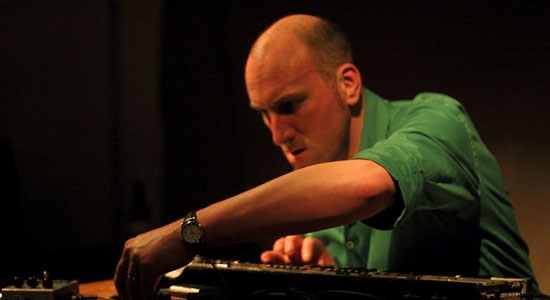 The Pogues on record are never short of inspirational, and in person, they might be a life-changing experience. This hackle-raising blend of traditional Irish folk music, politically charged broadsides and electric rock ‘n’ roll, delivered by charismatic frontman Shane MacGowan flanked by a grizzled band of veterans that includes penny-whistle virtuoso/alternate vocalist Spider Stacy, was formed in the King’s Cross district of north London in 1982. Despite occasional time off for good behavior, they’ve been playing ever since and have a handful of festival dates planned for this summer. Here’s hoping it lasts for at least another 10 years. We are proud to say that Stacy, who is currently appearing as a street musician in season two of HBO’s Treme, will be guest editing magnetmagazine.com all week. Read our new Q&A with him.
The Pogues on record are never short of inspirational, and in person, they might be a life-changing experience. This hackle-raising blend of traditional Irish folk music, politically charged broadsides and electric rock ‘n’ roll, delivered by charismatic frontman Shane MacGowan flanked by a grizzled band of veterans that includes penny-whistle virtuoso/alternate vocalist Spider Stacy, was formed in the King’s Cross district of north London in 1982. Despite occasional time off for good behavior, they’ve been playing ever since and have a handful of festival dates planned for this summer. Here’s hoping it lasts for at least another 10 years. We are proud to say that Stacy, who is currently appearing as a street musician in season two of HBO’s Treme, will be guest editing magnetmagazine.com all week. Read our new Q&A with him.

Stacy: I met Neil Campbell through MySpace back in the heady days of 2006. I had recently discovered Michigan’s unbelievably ferocious Wolf Eyes and the euphoric clatter of New York’s No-Neck Blues band, to name but two out of hundreds, and it was on Wolf Eyes’ MySpace I noticed Astral Social Club was one of their friends. I knew the name but not the music. So I took a listen and sent in an immediate message. ASC is Neil’s most often used nom de guerre, but his work has appeared under many different guises. I suppose the easiest way to describe him as one of those people who took the Faust/Can/Throbbing Gristle route through punk and just kept going. There was a very healthy interest in the avant-garde and its interaction with rock music from the early ’70s onwards since the groundbreaking German bands of the ’70s had arrived with a totally fresh insight of the potentialities of electronics and synths as having something more substantive than a Donald Duck-on-acid, wizard-caped sprinklings of cheap fairy dust.
They and the British groups such as the aforementioned Throbbing Gristle (with their cold, grey brutalism, as fitting a soundtrack for the death of optimism and the cruel banality of British life in the ’70s) opened the door for a slew of artists with a similar desire to create not just sounds but ways of hearing from outside the accepted parameters, an attempt to actually do something different. The Pop Group, This Heat and Cabaret Voltaire all achieved a recognition that would be inconceivable today, whilst, as always, an iconoclastic, DIY underground mish-mash of freaks and people whose genius had been bent into the oddest shapes began to coalesce.
Neil was one of the first of these, back in ’81 or ’82. I think his first band was the A Band, but I’m more than likely wrong. He doesn’t know how many bands he’s been in, so I don’t see why I should. Especially as he’s been in at least 60. He is one the most sonically imaginative artists I have ever heard—a blissful, churning racket of exquisitely moulded, propulsive, techno dance noise. Or that’s just one of any number of ways I could attempt to describe what he does and still leave no one any the wiser. He’s allowed me to collaborate with him at a few gigs and recordings, and it’s always been an exhilarating, nerve-wracking and totally liberating experience. The freedom to do whatever sounds like it might work to, as Neil so succinctly puts it, put up a wall and then peer over the top, is a totally immersive experience. Watching him live can be the kind of visceral and intense experience most rock bands can only hope to dream of.
Video after the jump.






